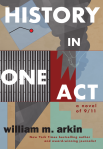From the Archives, Bulletin of the Atomic Scientists, January/February 2002
The head of studies at a prestigious Washington think tank quipped during a recent conversation that not one liberal foundation is interested in supporting non-governmental work on conventional war—“unless of course,” he said, “you mean gender studies [or] air power.”
The United States is fighting its third major conventional conflict in little more than a decade, but there are few independent civilian experts who can talk knowledgeably about this type of warfare. There are a handful of academics,most of whom are primarily concerned with theory; some defense industry and think tank experts beholden to corporate sponsors; and a division of retired military officers.
The public loses almost every time some bloviating retired general is interviewed on television. During a recent TV news program, one general was asked how long the anti-terrorism war might take. “As long as it takes to get the job done,” he replied. Viewers would have been better served if a military public affairs officer had been interviewed; at least then they would have known they were getting the official line, not something masquerading as analysis.
Policy-makers and military decision-makers would also benefit from outside expertise—from analysis based on public interest and an awareness of what is and isn’t politically possible. Instead of the interminable prattle from biased experts who support weapon system A over weapon system B, the military needs a citizenry that clearly understands the reality of the use of force in the twenty-first century.
The conduct of war is too important to be left only to the generals. What the public needs is a new cadre of experts who understand the causes and consequences of conventional warfare, who—despite being civilians—are able to approach the topic from a position of military expertise.
Are the foundation to blame for this lack of civilian expertise? As one foundation executive says: “There are conventional wars going on all over the place all the time and many of us can name at least some of them.”
Although foundations have minimally supported a number of campaigns related to conventional warfare—small arms, land mines, ethnic conflict, and the arms trade—they have not developed a coherent, overarching approach to the issue. As one non-governmental expert told me: “The 1990s were chaotic, and no single vision emerged as to how to deal with the post–Cold War era.” With no overarching security threat to focus on, he says, foundations began supporting work on “soft” topics, but never in a consistent or concerted way. He fears that in the wake of September 11, issues that the foundations “had the luxury to take on in the 1990s” may be abandoned in favor of international terrorism.
Part of the Reason September 11 happened was that U.S. policy-makers and think tank experts were too busy worrying about dubious threats of weapons of mass destruction to assess the obvious and more likely threat of unconventional terrorism.
The terrorist attacks were also the product of an unresolved war in Iraq, the growing U.S. military presence in the Gulf region, and the widespread perception of American impunity in an age of air power.
Don’t get me wrong—I am not arguing that the U.S. military should fight conflicts in the same way as its adversaries. But it might be wise to ask ourselves about the long-term implications of this new American style of war. Undertaking that appraisal, however, requires a savvy, thoughtful, educated, and knowledgeable group of independent experts.
“I suspect the issue isn’t so much that foundations don’t understand the devastation caused by conventional war,” the head of one large NGO told me, “as that they view it as inevitable or at least very difficult to avoid.” But this is no excuse,he says, for not paying more attention and devoting more resources to the issue.
A good start might be knowing what and where the wars are.



Pingback: Links 4/13/2021 | naked capitalism
Pingback: Links 4/13/2021 – Economics
Pingback: Links 4/13/2021 – My Blog
Pingback: Links 4/13/2021 - Breaking News log
Pingback: Links 4/13/2021 – Viral News Connection
>
Dear Mr Arkin: Just wanted to compliment you ,and by extension, Dana Priest, on your GREAT and informative collaborative 2010 book “Top Secret America”. It’s a loooong story but I can tell you that I used it to confirm my suspicions that Angelina Jolie (the movie actress) was working for the C.IA (running drugs!) while pretending to be “a humanitarian”, back between 2005-2020. Thanks to the info in your book I was able to determine that this was indeed the case! I stumbled on the book at the local library in the “New books” section in around 2010 (I am Canadian, BTW) and it was EVERYTHING I could have asked for in terms of “is this possible, or not?” Now here’s the thing: I went back to the library about 3 months later to re-borrow the book- and it had VANISHED off the shelves…and the library staff knew NOTHING about it- and it had been EXPUNGED from the library records- and this despite being listed as a “NEW” book. LOL! Guess i was “hitting the mark” too closely! I knew “TSA” would be just the book I needed when i read that the C.IA called it ‘treasonous”- and it sure “betrayed” that evil phony slag and gave me the means to “unmask” her- at a Brit website (“Femalefirst”) I was on for the whole time. Someone there even threatened toi contact you and Dana to complain about me quoting from your book (which I praised frequently and recommended to people over and over again. Just wanted to say THANK YOU and let you know your book served a positive purpose!